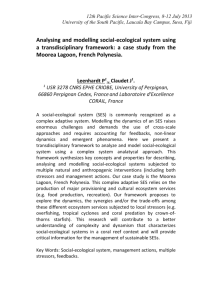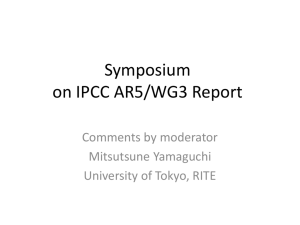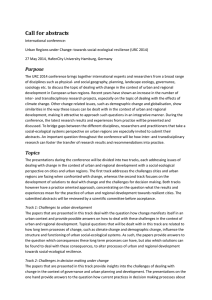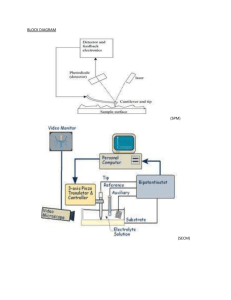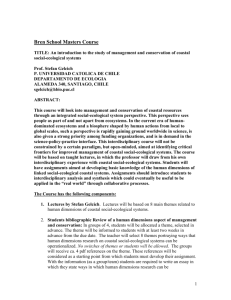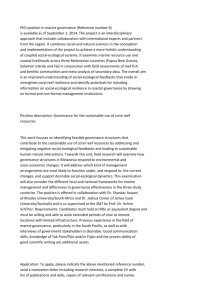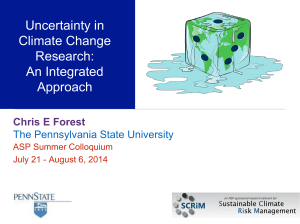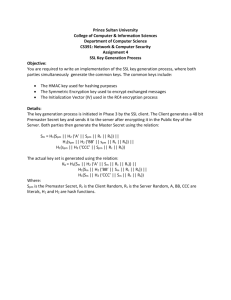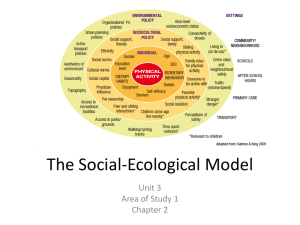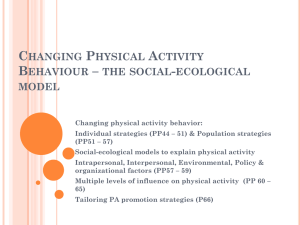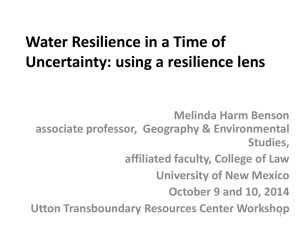Document
advertisement
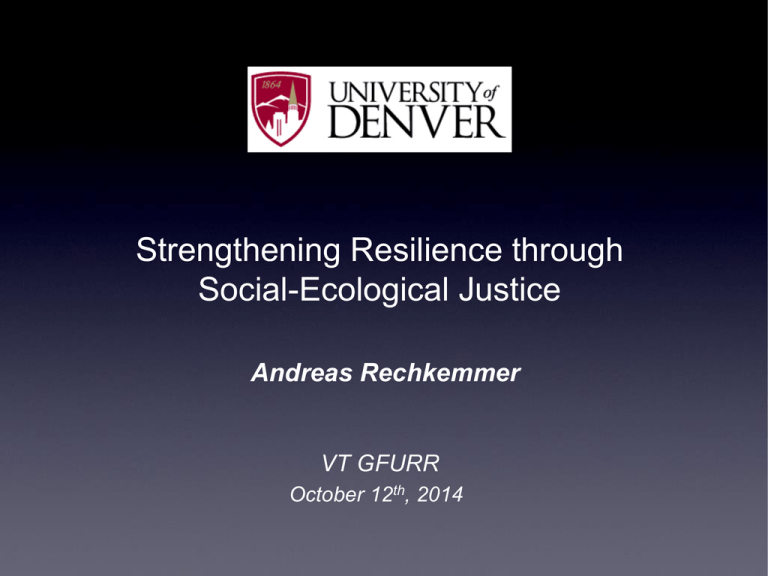
Strengthening Resilience through Social-Ecological Justice Andreas Rechkemmer VT GFURR October 12th, 2014 Resilience Thinking Social-Ecological Systems Sustainable Development Normative Foundations Global Environmental Change and Development Global Environmental Change Large costs for wealth and development Undermining the possibilities to attain global development Growing Vulnerabilities Degradation of Ecoysstem Services The Anthropocene is the period when human activity has overtaken vast parts of the natural cycles on the planet, and has done so in ways that disrupt those cycles and fundamentally threaten us in the years ahead. Anthropocene’s impacts The Anthropocene is felt in many areas, e.g.: rising greenhouse gas emissions, anthropogenic climate change, ozone depletion (Antarctic) freshwater stress, ocean acidification and depletion human dominance of the natural nitrogen cycle through heavy use of fertilizers to feed a world population of 7 billion people loss of multiple ecosystem services habitat destruction, loss of livelihoods, dramatic loss of biodiversity and food supply over-fishing, over-hunting, over-gathering, over-exploitation of natural resources leading to population collapse and species extinction new and emerging diseases (many of which are zoonoses) and global pandemics Figure SPM.1b Observed change in surface temperature 1901-2012 All Figures © IPCC 2013 Figure SPM.1a Observed globally averaged combined land and ocean surface temperature anomaly 1850-2012 All Figures © IPCC 2013 Figure SPM.4 Multiple observed indicators of a changing global carbon cycle All Figures © IPCC 2013 Figure SPM.10 Temperature increase and cumulative carbon emissions All Figures © IPCC 2013 Figure SPM.9 Global mean sea level rise All Figures © IPCC 2013 Social-Ecological Paradigm Shift Resilience Ethics vs. Utilitarianism (Status quo in International Policy) vs. Theories of Social Contract (John Rawls et al.) But based on an Idea of Justice that goes ‘beyond compassion and humanity’ (Nussbaum 2004, 2006) and builds on rights-based views, and capabilities. “The basic moral intuition behind the approach concerns the dignity of a form of life that possesses both deep needs and abilities; its basic goal is to address the need for a rich plurality of life activities.” (Nussbaum 2004) As with human capabilities, the emphasis lies on autonomy, in the sense that all species and natural systems should be enabled to ‘flourish’. Sustainable Development will be achieved more easily if we place the idea and principle of Social-Ecological Justice at its very foundation, conceptually as well as in every action. In the sense of Kant, Social-Ecological Justice should precisely not be motivated by utilitarian or contractarian approaches, but rather be perceived as an a priori, transcendental moral principle informing law, ethics, policy and action alike. In the Groundwork for the Metaphysics of Morals (1785), Immanuel Kant (1724-1804) argues that morality is based neither on the principle of utility, nor on a law of nature, but on human reason. According to Kant, reason tells us what we ought to do, and when we obey our own reason, only then are we truly free. Social-Ecological Justice for Humans Animals Biodiversity & Ecosystems Planetary Systems & Boundaries Thank you! andreas.rechkemmer@du.edu
